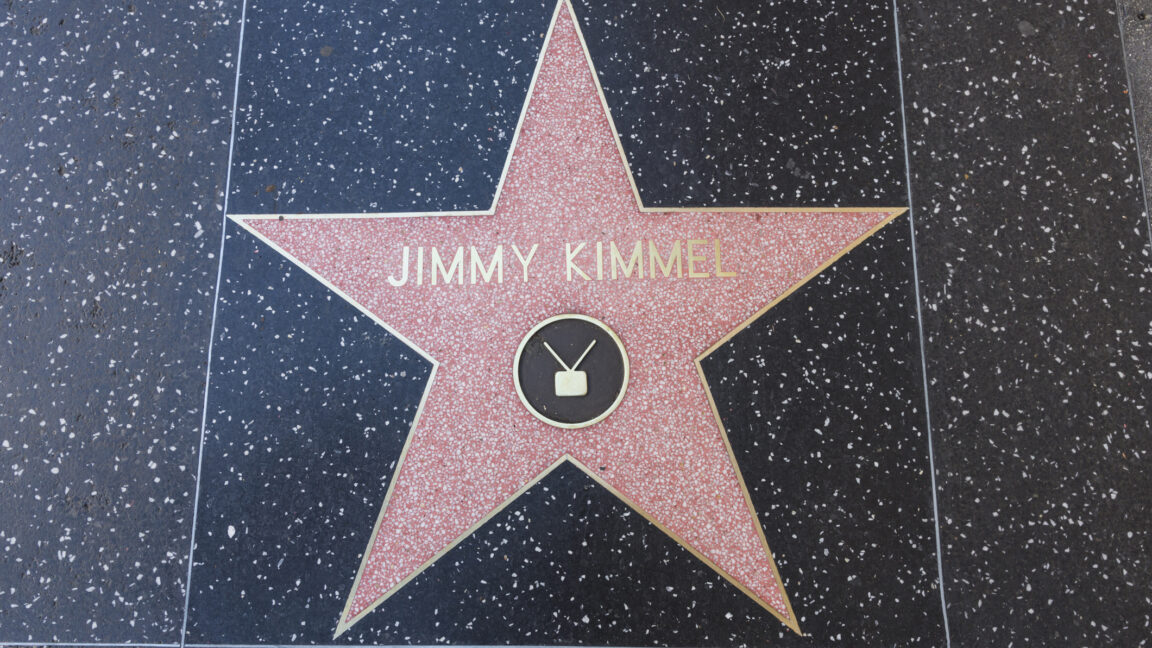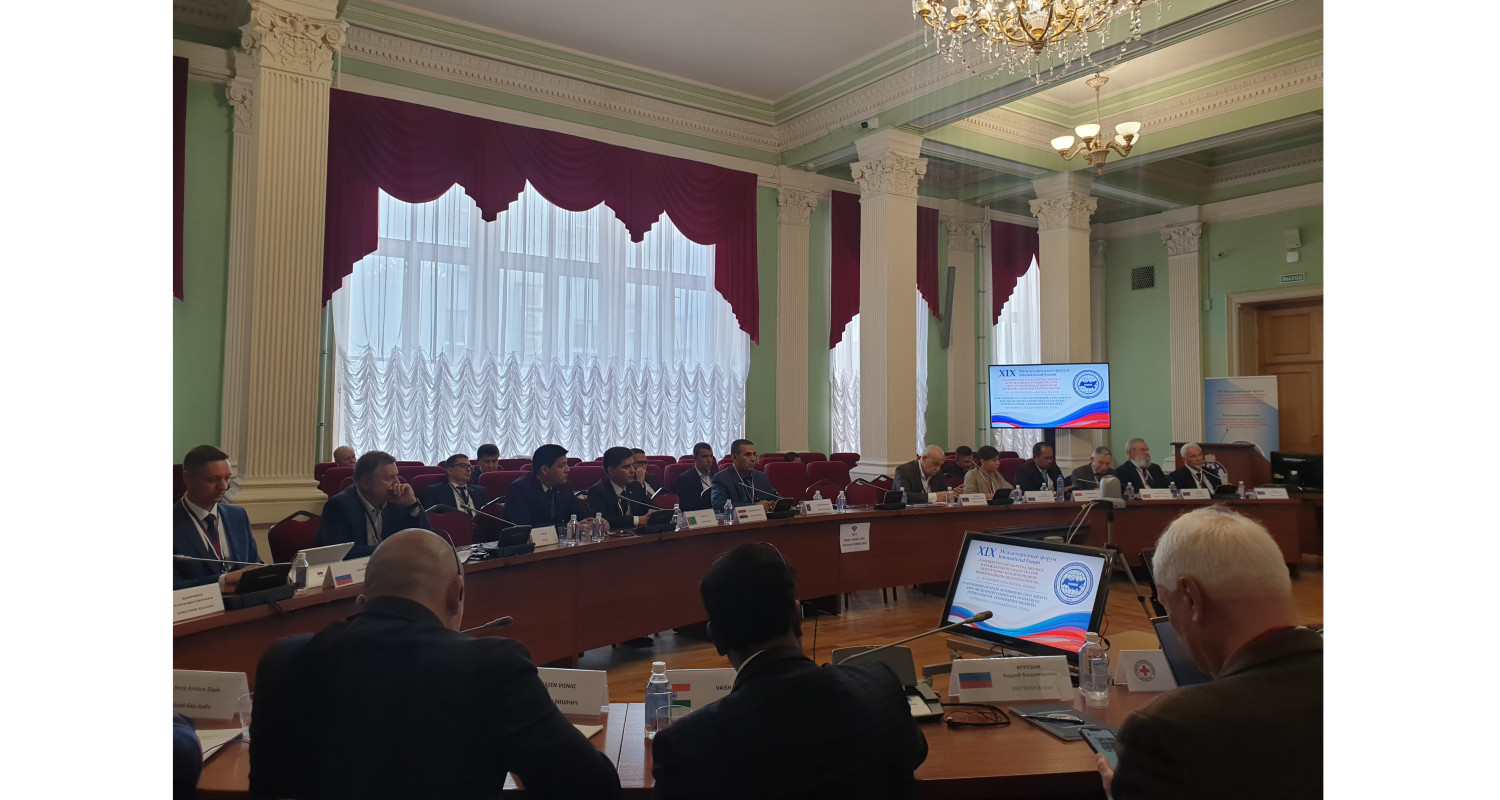
In 2024, the US Supreme Court unanimously ruled to defend a pretty obvious idea about free speech: viz., that the government cannot punish people or companies simply for saying things that government officials dislike or disagree with. Being a media organization, this principle is of fundamental importance to Ars Technica.
Unfortunately, nearly one year on, the government is routinely trying to censor voices it doesn’t like. The recent blow-up surrounding late-night comedian Jimmy Kimmel is just one of the most obvious examples of the new censorship regime. But the case also shows that, even where courts do not act, the public can still successfully push for change.
Disfavored speech
Here’s how Justice Sonia Sotomayor put the basic free speech principle last year:
Six decades ago, this Court held that a government entity’s ‘threat of invoking legal sanctions and other means of coercion’ against a third party ‘to achieve the suppression’ of disfavored speech violates the First Amendment. Today, the Court reaffirms what it said then: Government officials cannot attempt to coerce private parties in order to punish or suppress views that the government disfavors.
Current Federal Communications Commission Chair Brendan Carr has long known this. A few years back, when the Republican bogeyman was “social media censorship of conservatives,” Carr regularly tweeted out things like:
If a social media company gets pressured by a government official (Republican or Democrat) to censor protected speech, I think the company should quickly and publicly disclose that request… There should also be accountability for government officials that jawboned social media companies like Facebook into censoring Americans’ protected speech.
This was in line with early executive orders, such as one in favor of “freedom of speech” that complained about attempts to exert “substantial coercive pressure on third parties… to moderate, deplatform, or otherwise suppress speech that the Federal Government did not approve.”
But the mood has shifted, and the new marching orders are clear: It’s time for the government to censor its political enemies. Carr himself has jumped aboard Team Censorship with cringe-worthy enthusiasm and has resorted to using thuggish language that sounds like it comes from a third-rate crime novel. Last week, after Kimmel made some remarks Carr did not like, he threatened media companies by saying, “We can do this the easy way or the hard way. These companies can find ways to change conduct, to take action, frankly on Kimmel, or there’s going to be additional work for the FCC ahead.”
Carr went on to suggest he might look at other TV shows he didn’t like, too, including The View and late-night offerings from Seth Meyers and Jimmy Fallon.
He’s not the only one in government doing this sort of heavy-handed speech policing. This weekend, the Department of Homeland Security put out a bizarre press release calling on the “media and the far left to stop the hateful rhetoric directed at President Trump, those who support him, and our brave DHS law enforcement.” (Such rhetoric includes referring to masked federal agents as “secret police.”) The statement then implored Americans to “turn down the temperature.”
Meanwhile, noted Christian Donald Trump was at a funeral where he was turning down the temperature with peacemaking statements like, “I hate my opponent and I don’t want the best for them.”
As noted by The New York Times, the push for censorship is coming right from the top. President Trump himself recently “suggested that a clutch of protesters who yelled at him in a restaurant be prosecuted under laws targeting mobsters. He demanded that multiple late-night comics who mocked him be taken off air. He threatened to shutter television broadcasters that he deemed unfair to him. He sued The New York Times for allegedly damaging his reputation. And that was just last week.”
Media companies with business before the FCC—often pending mergers—have seen the writing on the wall: Do what this administration wants or face some of the “additional work” Carr has threatened. Paramount, for instance, paid Trump’s presidential library $16 million after using two different but accurate parts of a Kamala Harris answer during two different broadcasts. It is unclear what could possibly be illegal about this… but Paramount had a pending $8.4 billion merger before the FCC. (The company insists the payment and the merger are completely, unequivocally unrelated events that just happen to be coincident in time. After the settlement, the merger was approved.)
When Kimmel made his remarks last week on his ABC television show, two major groups of broadcast TV stations owned by Nexstar and Sinclair objected to airing more of Kimmel’s shows. This is their right, within the bounds of whatever contract they have with ABC, so long as it is not conditioned by government interference.
Nexstar, at least, claimed that its decision had nothing to do with Carr’s comments, but the company does have major business before the FCC. As Variety notes, “Nexstar needs FCC approval to acquire Tegna, the fourth-largest broadcaster, which would require lifting the station ownership cap, which allows broadcasters to reach no more than 39% of the national audience.”
As for Sinclair, it has long been a right-wing company, and it is also looking for help from the government. In a statement, the company praised Carr and explicitly asked for his aid, saying, “We appreciate FCC Chairman Carr’s remarks today and this incident highlights the critical need for the FCC to take immediate regulatory action to address control held over local broadcasters by the big national networks.” (Sinclair has also demanded that Kimmel apologize to the family of Charlie Kirk and make a “meaningful” donation to the hard-right organization Turning Point USA, which Kirk ran.)
Regarding the network itself, ABC owner Disney will need “the Trump administration’s greenlight for ESPN’s deal to buy the NFL Network,” notes Deadline.
Not a great look, whatever the personal or commercial aspects of the decision to suspend Kimmel.
The protest
Given all this background, it is perhaps inevitable that we would see a strong backlash to Kimmel’s suspension. Former Disney CEO Michael Eisner, for instance, took to X to ask his former company:
Where has all the leadership gone? If not for university presidents, law firm managing partners, and corporate chief executives standing up against bullies, who then will step up for the first amendment? The “suspending indefinitely” of Jimmy Kimmel immediately after the Chairman of the FCC’s aggressive yet hollow threatening of the Disney Company is yet another example of out-of-control intimidation. Maybe the Constitution should have said, “Congress shall make no law abridging the freedom of speech, or of the press, except in one’s political or financial self-interest.”
Hundreds of Hollywood stars, ranging from Tom Hanks to Meryl Streep to Lin-Manuel Miranda, signed on to an open letter about Kimmel, saying that “efforts by leaders to pressure artists, journalists, and companies with retaliation for their speech strike at the heart of what it means to live in a free country.”
Other artists, like Sarah McLachlan and Jewel, recently refused to perform during the gala premiere of a new ABC documentary on their Lilith Fair concert series.
Even Republican politicians like Rand Paul and Ted Cruz have complained about Carr’s actions. Cruz called Carr’s comments akin to a “mafioso coming into a bar going, ‘Nice bar you have here, it’d be a shame if something happened to it.'” (Republicans have long complained about the Biden’s administration’s requests to social media sites to block posts sharing COVID misinformation, so at least Cruz and Paul are consistent with their criticisms.)
Dissatisfaction over the whole situation has found a broad following among ordinary users. Unable to do much about Trump or Carr until the next election, people have instead begun canceling their Disney+ and Hulu subscriptions in protest of ABC’s actions.
Y Combinator founder Paul Graham was among them, tweeting this weekend that his family “just cancelled our Disney+ subscription because of the shameful way they caved to the Trump administration over Jimmy Kimmel. This is a way to be heard, and save money too.” In follow-ups, Graham complained that Disney is “spineless” rather than driven by any true convictions. “When wokeness has the upper hand, they give in to that, and when Trump does, they give in to him,” he wrote.
On Sunday night, comedian John Oliver also asked his fans to boycott the streaming services. “As for Disney, I’d argue they need to stand by Kimmel and his staff,” he said. “And there are ways that you can encourage them to do that. You could exert pressure on them by canceling Disney+ or Hulu. Google searches on how to do that have skyrocketed in the past few days.”
The Disney+/Hulu cancellations attracted enough media attention to be featured in the ultra-mainstream pages of USA Today, while people took to posting screenshots of their Disney+/Hulu cancellation notices on social media.
While some people complained that the cancellation page itself was unreachable, perhaps due to traffic pressures, I had no problem reaching it on Monday morning. While I never watched Kimmel’s show, nor did I find his clips particularly side-splitting, I also have zero interest in giving money to US media that seem so enthusiastic about capitulation and self-censorship. That’s unlikely to be good for anyone in the long run, no matter your politics.
Disney did make me click through two additional screens—a three-month “special offer” and then a page of “recommended” shows that I would miss out on if I clicked one final box—but the process worked fine and was relatively painless.
The return
Trump has long been obsessed with the idea that other countries are “laughing at us.” Thanks to the Kimmel fiasco, they now literally are. (Not-completely-safe-for-work European parody of a Trumpified Disney.)
For days, it looked like Kimmel might not return at all. (Recall that late-night host Stephen Colbert, often a Trump foe himself, also had his show canceled recently… shortly after criticizing his parent company CBS/Paramount for the Trump settlement mentioned above. CBS, like Nexstar, swore up and down that this cancellation had absolutely nothing to do with appeasing the government.)
But on Monday afternoon, Disney apparently bowed to the pressure, issuing a statement saying that it would bring Kimmel back on Tuesday night. Whether all of its affiliates will air Kimmel’s show remains to be seen.
In our topsy-turvy world, where even “free speech” really means “government censorship,” it can be easy to lose hope in one’s ability to enact change. But hope is essential to fighting off despair and maintaining the ability to act. Whether or not you like Kimmel or even approved of his remarks, at least the tussle over his suspension is a reminder that 1) protest still counts for something, 2) not everyone is ready to embrace a world in which a thuggish government tells us what we can say about its actions, and 3) even Ted Cruz and Michael Eisner can agree on a few things.
It’s not a lot, but in the darkness, even a candle can be enough to light the path ahead.



